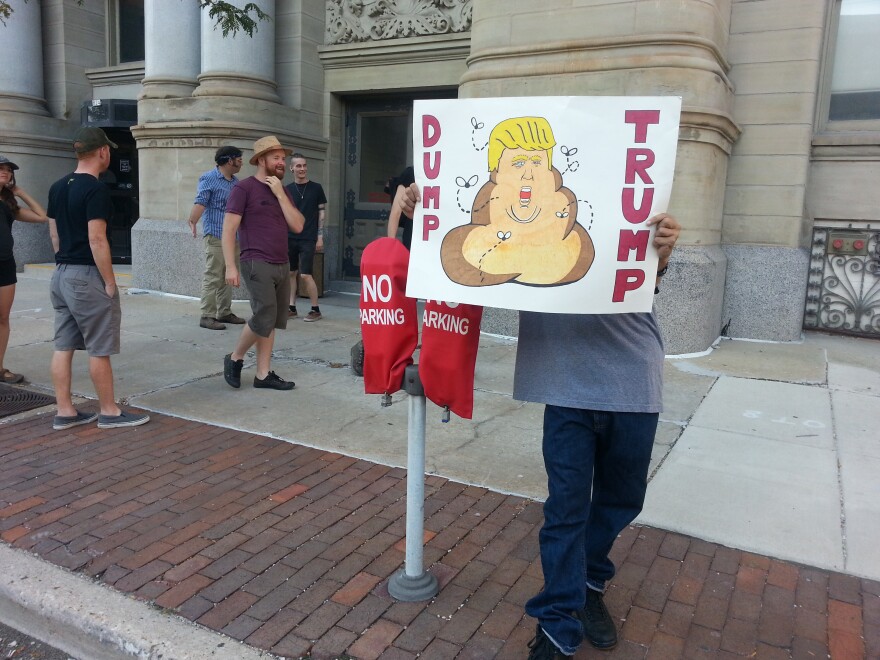The police shooting and violence Milwaukee has experienced since the weekend topped Republican presidential nominee Donald Trump's visit to the region Tuesday.
At a campaign rally in West Bend, Trump told the crowd that Democratic policies and attitudes have brought many central city neighborhoods, including in Milwaukee, to their knees.
“The main victims of these riots are law abiding African American citizens living in these neighborhoods. It’s their jobs, it’s their homes, it’s their schools and communities which will suffer the most, as a result. There is no compassion in tolerating lawless conduct for anyone," he said.
Trump also said that Democratic policies have held down people of color and promoted an anti-police attitude. "Those peddling the narrative of cops as a racist forced on our society, a narrative supported with a nod by my opponent, share directly in the responsibility for the unrest in Milwaukee and many other places within our country," he told the crowd.
Trump said he would improve the safety of citizens.
Earlier in the day, the Republican presidential nominee appeared at the Pabst Theater in Milwaukee for a taping of a Fox News show. Hundreds of supporters turned out to see the presidential nominee.
WUWM spoke with supporters waiting to enter the theater and found that the unrest in Milwaukee also weighed heavily on their minds.

Abe Sadowsky drove here from Green Bay and said what happened on Milwaukee’s north side over the weekend is sad.
“I think it’s wrong. I don’t think people should be doing that to their own community. I hope it gets better because people in that situation are going to act that way if nothing is changed,” Sadowsky said.
Sadowsky thinks Donald Trump can help people in Milwaukee’s central city. “Go and work with city leaders, make sure they do their part to help the community, overall just help out in the inner city,” he said.
“I would like to see Trump go to some of these places, the blacks, and talk to them and say, this is what I’ll do for you, I’ll get businesses going, to give you jobs and set up schools," said Patt Bundy.
She thinks Trump would show compassion toward the plight of Milwaukee’s struggling residents, if elected. Bundy said an important issue for her this election is education, and she wants to also bend the governor’s ear.
“I do know Scott Walker and I would say to him, get more schools that are charter schools where the parents can pick the schools because I think they can get a better education,” Bundy said.
Another person who drove a ways to see Trump is Ron Walters from Chicago. He said he’s considering donating his time to help the Sherman Park area rebuild.
But Walters thinks a president should play a limited role in these situations. “I think the burden is more on the families in the community. I think the community needs to heal itself, it’s in the community, it’s not politicians,” Walters said.

Outside the theater, a couple dozen protesters gathered – shortly before Trump arrived. Some held signs reading “Dump Trump.” One of them was Brian Chiu, who doesn’t think Trump is fit to be president.
“He’s against everything that America stands for. He wants to build a wall around the border,” he said.
Chiu doesn’t think Trump would do anything, if elected, to rectify conditions that may have contributed to the unrest in Milwaukee.
Sugar Ransom doesn’t want Trump to be president, but if he is, she would like him to pour money into social programs in Milwaukee.
“If Donald Trump is elected, I think that he should put more funding into education and roads in those neighborhoods and make sure they have jobs, and end mass incarceration,” Ransom said.






